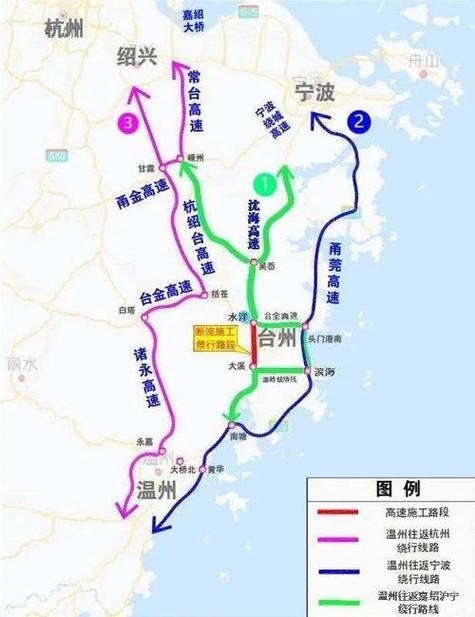我将为您详细梳理这条线路,分为“必游经典景点”、“主题特色玩法”和“行程规划建议”三大部分,方便您根据自己的兴趣选择。

(图片来源网络,侵删)
必游经典景点 (台州核心精华)
台州本身就是一个宝藏目的地,主要可以分为三大板块:天台山、神仙居、临海古长城,这三个是台州旅游的“铁三角”,也是大多数游客的首选。
天台山 (佛教名山 & 浙江山水)
天台山是浙东“唐诗之路”的精华所在,也是佛教天台宗和道教南宗的发源地。
- 国清寺: 天台宗的祖庭,中国四大寺庙之一,环境清幽,古树参天,是体验佛教文化、静心祈福的绝佳去处,寺旁的隋塔和梅鹤也很有名。
- 石梁飞瀑: 被誉为“天下第一奇观”,一座天然的石桥横跨溪上,瀑布从桥下奔泻而下,气势磅礴,是力量与自然完美结合的典范,需要一定体力攀登,但绝对值得。
- 琼台仙谷: 一条峡谷,两侧峭壁耸立,溪水潺潺,步道沿着峡谷修建,景色险秀,充满仙气,谷底的百丈崖和天梯是精华所在。
神仙居 (震撼的自然风光)
神仙居是近年来台州最火的景点,以其独特的火山流纹岩地貌著称,山体巍峨,奇峰险峻,云雾缭绕,宛如仙境。
- 核心看点: 南天顶、如意桥、画屏烟云、烟雨江南等,特别是如意桥,因其独特的造型和绝佳的观景位置,成为网红打卡地。
- 游玩方式: 强烈建议乘坐索道上下,可以节省大量体力,将更多时间用于欣赏风景,景区内有南天顶和西罨两个索道站,可以组合游玩。
临海 (千年古城 & 江南长城)
临海是一座有着千年历史的江南小城,既有深厚的人文底蕴,也有独特的城市风光。

(图片来源网络,侵删)
- 江南长城(台州府城墙): 始建于晋代,是北京故宫的“蓝本”,虽然长度不及北方长城,但其蜿蜒于江南山水之间的秀美与险峻,以及保存完好的瓮城,都独具特色,登上揽胜门,可以俯瞰整个临海古城。
- 紫阳古街: 浙江省内保存最完整的古街之一,全长超过一公里,街道两旁是明清风格的建筑,各种老字号小吃、手工艺品店林立,是体验临海市井生活的最佳去处。
- 东湖公园: 江南古典园林,紧邻古城墙,湖光山色,亭台楼阁,是当地人休闲的好地方。
主题特色玩法 (按兴趣选择)
如果您对以上经典景点已经有所了解,或者想体验一些特别的玩法,可以参考以下主题:
海岛风情之旅
台州拥有众多美丽的海岛,是夏日避暑和海鲜美食的天堂。
- 温岭石塘: 被誉为“东方好望角”,这里以石屋闻名,石头砌成的房屋错落有致,独具特色,还可以去千年曙光园迎接第一缕阳光,或去金沙滩踏浪玩沙。
- 大鹿岛: 国家级海洋公园,以“海上盆景”著称,岛上遍布奇礁异石,石刻艺术精美,海水清澈,是潜水、观景的好地方,需要乘船前往。
古镇寻幽之旅
感受台州的历史韵味和慢生活。
- 路桥十里长街: 浙东南著名的历史商街,曾是“浙东南的商贸中心”,街道两旁保留了大量明清时期的建筑,如今依然繁华,可以淘到各种有趣的玩意儿。
- 黄岩沙埠镇: 近年来因“沙埠青瓷”而闻名,这里不仅是青瓷的重要产地,镇上还保留着许多古色古香的民居和宗祠,适合喜欢安静和历史感的游客。
海鲜美食之旅
台州是“中国海鲜之都”,这里的美食绝对不容错过。

(图片来源网络,侵删)
- 必吃美食:
- 海鲜面/海鲜粉干: 新鲜的海鲜配上Q弹的粉干,汤头鲜美无比。
- 姜汤面: 临海特色,用老姜熬制的汤头,辛辣暖胃,是当地人最爱的早餐之一。
- 乌饭麻糍: 用南烛叶汁浸泡的糯米制成,香甜软糯,是台州的传统小吃。
- 各种时令海鲜: 梭子蟹、梅童鱼、望潮、贝类……在石塘、温岭等地可以吃到最新鲜的。
- 美食聚集地: 临海的紫阳古街、温岭的石塘渔港。
行程规划建议
从上海出发,高铁非常方便,最快约1.5-2小时即可到达台州。
经典3日游 (台州精华)
-
Day 1: 上海 → 天台山
- 上午:从上海虹桥站乘坐高铁到天台山站。
- 下午:前往国清寺,感受千年古刹的宁静,之后在寺旁的隋塔和梅鹤附近逛逛。
- 晚上:入住天台山脚下的酒店,品尝当地农家菜。
-
Day 2: 天台山 → 神仙居
- 上午:前往石梁飞瀑,欣赏大自然的鬼斧神工。(体力要求较高)
- 下午:驱车前往神仙居,游玩景区,建议乘坐索道,重点游览南天顶、如意桥等精华景点。
- 晚上:入住神仙居景区附近或仙居县城的酒店。
-
Day 3: 神仙居 → 临海 → 上海
- 上午:如果时间充裕,可以去神仙居的另一个入口西罨景区简单逛逛,或直接驱车前往临海。
- 中午:抵达临海,在紫阳古街品尝午餐,逛逛老街。
- 下午:游览江南长城,登揽胜门俯瞰古城。
- 傍晚:从临海站乘坐高铁返回上海,结束愉快的旅程。
休闲4日游 (海岛+古城)
-
Day 1: 上海 → 临海
- 抵达临海,入住酒店。
- 下午:逛紫阳古街,感受市井气息,品尝姜汤面、乌饭麻糍等小吃。
- 晚上:漫步东湖公园,或登江南长城看夜景。
-
Day 2: 临海 → 温岭石塘
- 上午:从临海出发,驱车前往温岭石塘。
- 下午:游览千年曙光园,参观独特的石屋民居,在金沙滩或七彩金沙湾踏浪玩沙。
- 晚上:入住石塘特色民宿,品尝丰盛的海鲜大餐。
-
Day 3: 石塘 → 大鹿岛 → 临海/仙居
- 上午:乘船前往大鹿岛,欣赏海上盆景和石刻艺术。
- 下午:返回石塘,之后驱车返回临海或仙居入住。
-
Day 4: 临海/仙居 → 上海
- 上午:可以在临海或仙居的市区逛逛,买点特产。
- 下午:乘坐高铁返回上海。
出行小贴士
- 交通: 高铁是首选,非常高效,在台州市内游玩,自驾是最方便的方式,景点之间有一定距离,也可以选择包车或乘坐当地的旅游专线大巴。
- 住宿: 天台山、神仙居、临海都有丰富的酒店和民宿选择,可以根据预算和喜好挑选。
- 最佳旅游时间: 春季(3-5月)和秋季(9-11月)气候宜人,是最佳旅游季节,夏季(6-8月)适合去海边,但注意防暑防晒。
- 门票预订: 建议提前在“浙里办”App、美团、携程等平台预订神仙居、国清寺等热门景点的门票,尤其是在节假日,可以节省排队时间。
希望这份详细的攻略能帮助您规划一次完美的上海到台州之旅!




